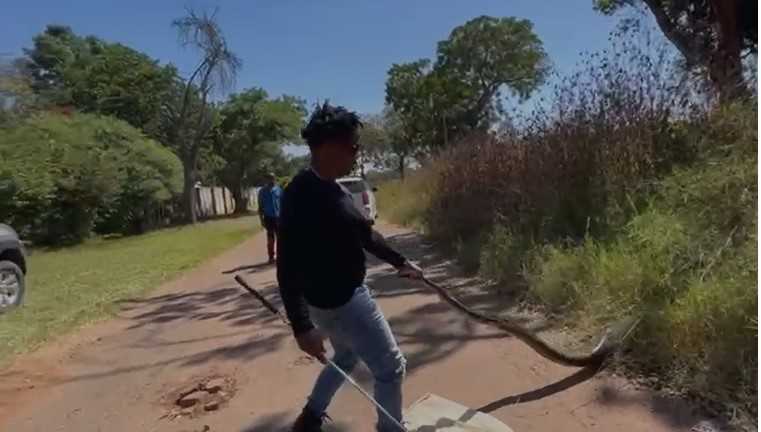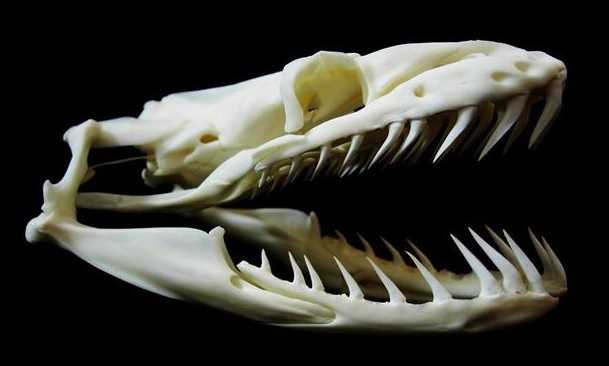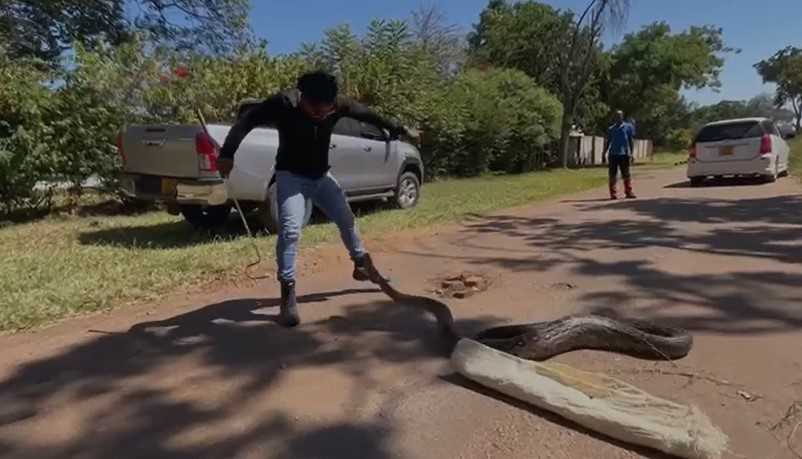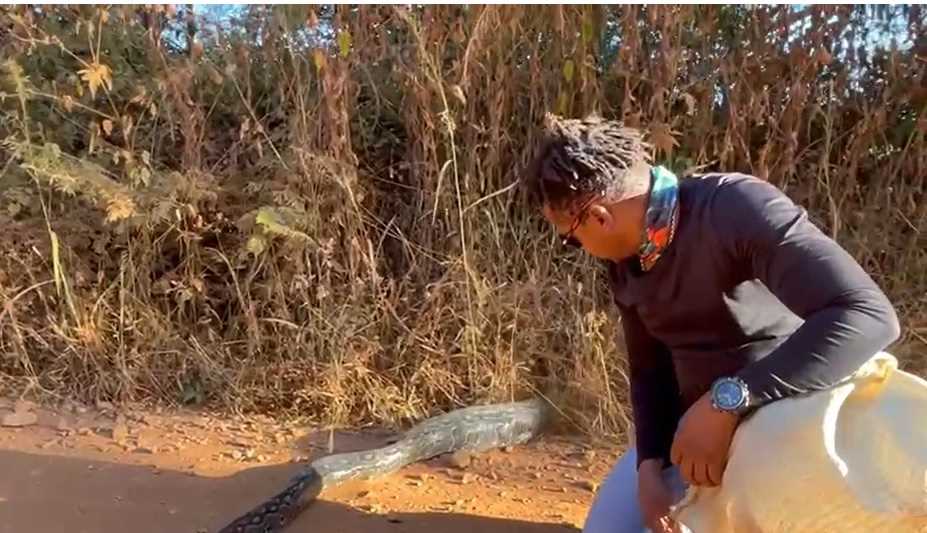- Pythons and snouted cobras common in Harare
- Mukuvisi River environs are python territory
- Chickens, pets and water features attract snakes
- Snake repellent plants are a myth
- Messy yards and disused buildings likely to shelter snakes

Monica Cheru
“By the time someone called me, it had disappeared into the tall grass nearby. The guy said it hadn’t gone far. So we looked for it and he soon spotted it. I pulled it out onto the road.”
“It” was a rather large python spotted in Hillside this opposite the rear entrance to OK Mart this past Thursday.
It was just another day in snake handler Chawatama “Chawaz” Marimo’s life.
Images of Chawaz and the about 3,4metre female python were soon circulating on social media. With accurate and inaccurate captions.
“I took the snake out into the open to check for injuries. Because usually people would have harmed the snake once it’s spotted,” Chawaz explains why he took the risk of pulling the giant snake into the open before capturing it.

Chawaz does some awareness raising every chance he gets:
“I also use this opportunity to educate people about snakes. For example a lot of people believe that pythons don’t bite. But they actually do.

“They are not venomous but have a lot of curved teeth and their bite can cause serious damage. One can lose use of limb because the bite would have lacerated the nerves.”
And of course the camera moments as a few brave people get a chance to touch a snake, perhaps for the only time in their lives.
“In my experience, there are more pythons in Harare than in the bush. There are many pythons to be found within a kilometre on either side of Mukuvisi River all the way from Glen Norah to Msasa,” says Chawaz.
He says disused factories and places with many reeds in that radius are the most likely to be hiding a slithery surprise.
In most Zimbabwean beliefs, snakes, especially pythons, have ambiguous symbolism as protectors or destroyers.
They can represent mhondoro (clan/region guardian spirits). At some sacred water sources legendary pythons are the guardians that ensure that springs pump out pure water even in the midst of the worst droughts.
But the same giants can also be familiars of witches sent on all sorts of evil errands, including swallowing unborn babies from their mother’s wombs leading to miscarriages.
From the Christian perspective, snakes are the sinful deceivers that led to the fall from grace of people-kind.
But all these myths are probably developed from a natural instinctive fear of snakes. Because snakes do kill people each year on every continent except Antarctica which is just too hostile a terrain for the cold blooded reptiles.
Snake bites are fairly common in Zimbabwe, In 2017 the health ministry issued statistics showing that in the first quarter of the year 5,605 cases of snake bites and 38 deaths had been reported in the country.

Last year in September a Hurungwe woman, her daughter and nephew all succumbed to suspected black mamba bites.
Related Stories
But Chawaz says snakes do not just bite at random and can be avoided.
“Snakes don’t attack people for nothing. It’s only those people who are molesting them,” he says.
He says the snakes have evolved to live among the people because that is where the food is.
“In Harare there are two main types of snakes, the python and the snouted cobra or mhungu. The snouted cobra is venomous,” said Chawaz.
Rubbish dumps that attract rats bring snakes to houses. Water features call to frogs and lizards and the snakes follow.
Small dogs, cats and chickens are easy prey for the pythons.
“If you want to keep chickens, expect snakes. It’s as simple as that,” Chawaz says.
Tall grass, rubble, and any other things that provide habitation will most likely attract snakes to your dwelling, he says.
“I have caught snakes that have been living in the house and the people there didn’t know.
“Most of the houses around Harare will have snakes in the yards without the residents realising it.
“Because snakes are very cunning and avoid people. They are also mostly nocturnal so will come at night and no one knows they are there.”
Chawaz says contrary to popular myths, there are no plants that will keep snakes out of the yard.
But there are steps that one can take:
- Keep your yard clean
- Maintain intact perimeter walls
- Inspect regularly and block any holes under the walls
- Have a solid gate that shuts tight and is fitted close to the ground
- Dispose of litter in a way that does not attract rodents
But if you do spot a snake or suspect that there could be one, Chawaz advises that you call a snake handler or National Parks.
Chawaz offers snake removal, snake avoidance consultancy and inspection services.
Although he just helps out at places like orphanages and old peoples’ homes, Chawaz says there is a charge for his services.
Just as you would not call out a plumber and not expect a bill, Chawaz says people need to respect snake handling as a risky job that requires a high level of expertise.
“I charge $30 on average because I have to meet my fuel costs, I am leaving my job to attend to calls and I will have to drive out of town to release the captured snakes into the bush,” he says.

The python captured in Hillside was safely returned to Mother Nature outside Harare.
Fascinated? Follow Chawaz as he goes around trying to reduce friction in people-snake relations:
https://www.facebook.com/chawaman?mibextid=LQQJ4d



















Leave Comments